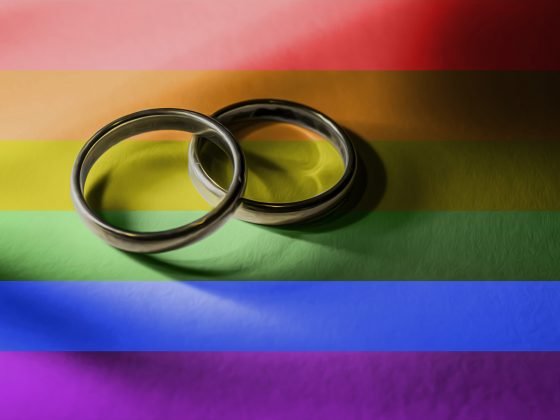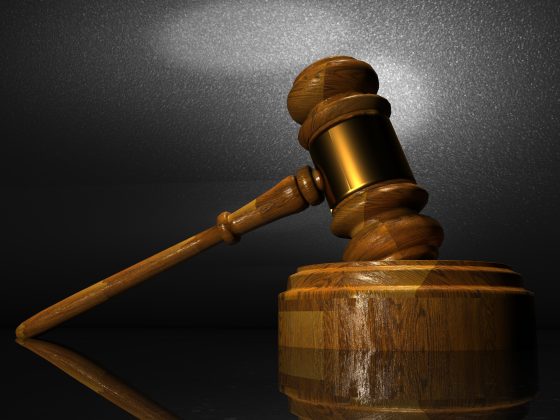#MeToo – Born in the West
A simple Tweet by Hollywood actress Alyssa Milano on 15 October 2017 – “If you’ve been sexually harassed or assaulted write ‘me too’ as a reply to this tweet” – kick-started the global #MeToo firestorm. Now a little over a year old, #MeToo has given a voice to previously silent or reluctant victims of sexual harassment.
The movement has publicly ended the careers of a trail of celebrities and high-profile business executives who, prior to #MeToo, engaged in sexual harassment, safe in the knowledge that the victims would be too scared to speak up.
While headlines initially focused on celebrities, the strength of #MeToo exposed the sexual harassment iceberg that had hidden millions of women and men below the surface, unable to speak out and take action about their shared experience of harassment and abuse.
Studies carried out in the US found that over 80% of women and 40% of men experienced sexual harassment during their lifetime, with 10-25% of women experiencing sexual harassment each year.
All the statistics show a huge proportion of all sexual harassment that occurs in the workplace, with the most common forms of workplace harassment being jokes about sex, sexual comments, staring, and unwelcome physical contact.
Me Too – A Global Phenomenon
While #MeToo exploded into the public consciousness in the West, its impact was not so immediate in Asia where it was initially denied by some commentators. The day after Milano’s tweet, China Daily ran an opinion piece asking “What prevents sexual harassment from being a common phenomenon in China, as it is in most Western societies?”.
The author went on to argue that Chinese society is more “harmonious” than Western societies and that “behaving inappropriately toward women, including harassing them sexually, contradicts every Chinese traditional value and custom”.
The opinion piece was instantly met with criticism and condemnation in both the West and China (and has since been removed from the China Daily’s website). The tone of discourse has also dramatically changed, with China Daily more recently running pieces titled “Employers need to do more to prevent sexual harassment”, “Stronger legal measures urged to combat sexual harassment”, and “A storm in the East a year after the launch of #MeToo in the US”.
Local studies show that these more recent headlines are much more representative of the reality in Hong Kong and China. In 2014, the Equal Opportunities Commission (EOC), Hong Kong’s equality watchdog, published a survey officially stating that “Sexual harassment remains a common occurrence in the workplace”. It went on to describe its findings that one-fifth of female workers say they have been sexually harassed, with a third of those doing nothing about it.
In the EOC’s March 2018 report Knowledge of Sexual Harassment and Experience of being Sexually Harassed in the Service Industries, it was revealed that 12.1% of those surveyed had been sexually harassed.
It is a sad indictment that the legislation designed to eradicate sexual harassment in Hong Kong, the Sex Discrimination Ordinance (SDO), has been on the statute books for over 20 years, but has had little practical impact despite a promising start. In its first year of enactment, the EOC received 13 SDO complaints, 11 relating to sexual harassment. The first District Court case of sexual harassment commenced in 1998 and won by the Claimant the following year (Yuen Sha Sha v. Tse Chi Pan [1999] HKDC 2).
As the awareness of rights increased, so did the initial number of SDO complaints handled by the EOC. The EOC’s Annual Reports over the past 10 years, however, show a relatively consistent plateau. Each year the EOC has handled around 100 reports of sexual harassment, with about 90% of all cases relating to workplace sexual harassment. Of these, the EOC has supported the complainants in court proceedings in fewer than five cases in each year.
The position in China is perhaps even more extreme. A study published in June 2018 by the Yuanzhong Gender Development Centre said that “of the more than 50 million court rulings made from 2010 to 2017 that are publicly available, just 34 involved sexual harassment”. Only two of these cases were brought by victims suing their alleged harasser, and both failed. While this may seem outrageous, it is perhaps less surprising when you consider there is currently no codified law preventing sexual harassment in China, and no legal definition of sexual harassment.
#MeToo Risk Bubble?
When those experiencing sexual harassment were asked why they had tolerated such behaviour and taken no formal action, the majority cited fear and complicated complaint procedures, with employees in smaller organisations being even less likely to come forward; this in part is due to such companies being less likely to have policies in place to deal with sexual harassment.
In the March 2018 EOC report, less than one-fifth of the employers in the Service industries had sexual harassment policies. In earlier EOC surveys undertaken between 2012 and 2016 across a wide range of sectors, including Sports, Social Services (NGO), Education, and Business, more than half of employers were found not to have any formal sexual harassment policy.
Recent statistics from the West, China and Hong Kong all show a huge disparity between the number of surveyed incidents of workplace sexual harassment and the number of formal reports made or cases brought to trial in the District Court.
#MeToo Practise What You Preach
#MeToo has given victims an invisible support network of millions of shared experiences, emboldening some who have traditionally tolerated harassment in silence to speak up and take action. This should set off the loudest of alarm bells for employers.
Under the SDO, unless an employer can show that it has taken reasonably practicable steps to protect employees from sexual harassment, the employer will be liable for the acts of its employees. The statistics indicate that almost half of all employers do not even have in place a zero-tolerance sexual harassment policy
or Code of Ethics which prohibits sexual harassment, which is the most basic of all steps an employer can take to protect employees from harassment. Without this basic protection, it is unlikely an employer would have any defence against a claim that is vicariously liable for the acts of an employee. In most cases a standalone policy will be insufficient, it must be implemented. Employees should be trained, and sign declarations of understanding, and the implementation of the policy must be consistent and transparent.
The high-profile sexual harassment scandals in China show that #MeToo continues to gain strength across the border. Human Rights Watch published a report on 8 November 2018 on female civil servants, citing numerous posts on social media describing their experience of being sexually harassed and seeking advice. It also reports that the anti-corruption campaign launched by President Xi Jinping has resulted in the disciplining of officials accused of sexual misconduct.
Wider action is also underway in China at a national level, with the preparation of the Draft Civil Code, set for final review by 2020 that will require employers to take reasonable measures against sexual harassment in the workplace. #MeToo also has the power to force employers to practice what they preach. When faced with criticism, organisations can no longer stay silent, and senior management and corporate untouchables can no longer act with impunity; the assumption on the assumption that complaints against high-ranking managers would be whitewashed no longer stands.
#MeToo has forced organisations to take responsibility for sexual harassment in the workplace. Cover-ups are no longer tolerated, and major organisations must be seen to be proactively stamping out sexual harassment.
This article was originally published on HR Magazine (2018/19 Winter edition)




